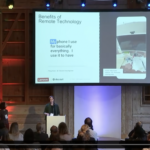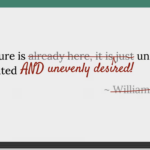
An EPIC2022 Sponsored Panel by Spotify
Moderators: AUDREY TSE (Spotify), KARELL MCDONALD (Spotify)
Panelists: KARIM HAMDOUN (Spotify), DOMINIKA MAZUR (Spotify), ALEXANDRA MCCARTER (Spotify), SAM WAY (Spotify)
[s2If current_user_can(access_s2member_level1)]
[/s2If]
[s2If !is_user_logged_in()]
Please sign in or become an EPIC Member to access video.
→ Learn about Membership
→ Browse Video Library
[/s2If]
[s2If current_user_is(subscriber)]
Join EPIC to access video:
→ Learn about Membership
→ Browse Video Library
[/s2If]
Over the past 2.5 years, researchers have had to become more resilient and adaptable in how they conduct research. Now that things are bouncing back, we’re at a crossroads in deciding what the future of user research looks like. In this panel, leading members of Spotify’s product insights community will discuss different perspectives on how researchers have adapted from face-to-face research to remote settings, and the adaptations we intend to keep in a hybrid practice. We will contemplate...













